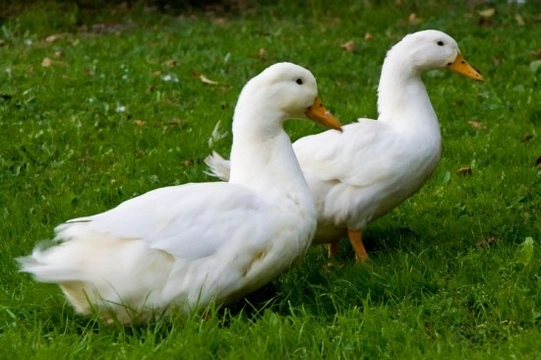Pets
Pets for studWanted petsBreedersAccessories & services
Knowledge hub
Support
Support & safety portal
Ducks - General health and well being
If you're new to keeping ducks, here is a quick reference guide of things worth looking out for when considering the general health, wellbeing and environment of your ducks.
Angel wing - Also known as slipped wing, crooked wing or dropped wing, this syndrome causes the wing feathers to grow in an abnormal pattern, with the last joint being twisted outwards and feathers pointing out instead of lying flush against the body.Angel wing is generally caused by feeding food too high in protein. There are various types of complete diets available for ducks with differing protein levels for different stages of their lives- make sure that you are feeding the most appropriate one.
Bald spots - Bald spots (sometimes mistaken for mange) around the head and neck of your duck is often simply caused by mating roughly. Out of choice, ducks mate on water rather than on land, and you can minimise the potential for injury and infection during mating by giving your ducks constant access to their pond or swimming area, particularly during the breeding season.
Beak problems - Spotting or discoloured patches on a duck's beak may be indicative of a fungal or bacterial infection. Seek advice from your vet, who may need to run some diagnostic tests. Lumps, bumps and rough areas on the beak are often caused by pecking, digging or rubbing the beak on hard ground, which can cause abrasions and injuries. Be aware of any areas your ducks have access to which may cause a problem, and see if you can address it.Occasionally, bumps and lumps on the beak may become infected, and need to be treated with an antibacterial preparation. Again, seek advice from your vet.
Breathing problems - Wheezing, coughing, sneezing or choking all requires veterinary attention ASAP. A sudden change in the weather can be enough to cause pneumonia in ducks, and ducklings can get colds from exposure to water or air that is not warm enough. Coughing and wheezing can also be a warning sign of food caught in the oesophagus or a variety of other problems that, if caught and treated quickly enough, are totally curable.
Bumble foot - A condition of the foot which presents with symptoms of swelling, redness and inflammation. Seek veterinary advice if you suspect one of your ducks has any kind of foot infection or weakness of the legs.
Eyes - Your ducks need to be able to immerse their whole head in water regularly, in order to clean and moisturise their eyes. Make sure clean water is available at all times. If your duck pond or dabbling area is particularly shallow, consider providing a deeper bucket of water for them to use for ducking and grooming.
Leg injuries - Exposed wire flooring in your duck house is one of the worst culprits for damaging ducks feet. Make sure any wire flooring is covered up. Injuries can also occur to ducks when entering and exiting the water, so make sure a ramp is provided if necessary. Ducks do have a tendency to stand on one leg, sometimes when asleep, with the raised leg tucked up under their plumage. This is normal behaviour and not cause for concern.
Living environment - In order for your ducks to thrive, clean and hygienic surroundings are vital. Clean out the coop or duck house on a daily basis, and put down fresh straw or bedding. Make sure food is stored in sealed airtight bins or containers that bugs and vermin cannot get into. Empty drinking water containers and replace drinking water with fresh water at least once a day. Make sure your duck's swimming pond is pest free and not stagnant.
Moulting - Ducks moult every six months or so, in the spring and autumn. During the re-growth period, the wings especially can be tender to the touch, so try to avoid unnecessary handling.
Poisons - Ducks can ingest poisons such as lead fishing weights, pesticides and chemicals. They are very sensitive to zinc, copper and lead. Try to make sure that your ducks' enclosure, pond and outdoor area are all free of any potential toxins. In the event of suspected poisoning, fast veterinary treatment can save lives. Never use pesticides around ponds or in the area where your duck enclosure and coop is. Do not use bleach or any other household cleaners around your ducks, or on any of their equipment.
Stimulation - Ducks are social animals, and need to be kept with others of their kind. They also need attention from you as well- neglected ducks soon become depressed and lonely, and more prone to illnesses.
Wing clipping - Most domestic breeds of ducks commonly kept as pets and for eggs do not need their wings clipped, as they have been bred in captivity for many years. A couple of varieties such as call ducks, however, sometimes have their wings clipped. Improper clipping can lead to bleeding and infection, so always make sure that only a veterinary professional performs wing clipping, should it be necessary.
Wing damage - Sharp objects such as wiring sticking out of fences, or easily missed obstructions that are below our eye level can cause cuts and damage to your duck's wings- as can fighting and playing with other ducks. A lot of these problems can be prevented by giving your ducks plenty of space to move about, thereby avoiding contact with potentially injurious objects or scrapping over territory.



